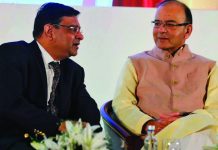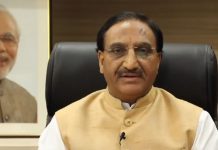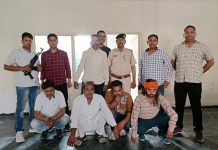
Photo: Dijeshwar Singh
EDITED EXCERPTS FROM AN INTERVIEW
What led you to start Qaumi Salamati in Urdu?
Considering my experience with the judicial process, the police mentality, people I’ve met in and out of custody, I’ve realised there is very little awareness among speakers of Urdu and other languages. What we see is not the reality. The real issues are never discussed because people in the corridors of power, in India and elsewhere, don’t want the public to talk about those issues. Terrorism has become an industry for certain countries, and certain people. From what I know, most incidents are staged. Can you conceive of a series of bomb blasts [in Pune] that kill no one? After that, many people are arrested. Do you think the blasts were real? This is a flourishing industry. You set off a firecracker in a marketplace and sell thousands of CCTV cameras, security gadgets and equipment.
Do you think the government will keep a close eye on the content of your paper, considering your pending case?
Let them. The government and the citizens are bound by the law and the Constitution. Let the law take its course.
Will you use your newspaper to fight the politics of counter terrorism?
Through Qaumi Salamati, we will try to set things right. I see my arrest as psychological warfare. You catch one person and create a sense of insecurity among thousands. But many people came out on the streets to support a so called terrorist. Not just in India, but internationally too. Around 5,000 people turned out in London, demonstrating in front of the Indian Embassy. This is the beginning of the reversal of manufactured terrorism. I met people in jail who have been facing illegal detention for months, years. They’ve been praying for a chance to be produced in court, but there are more chances of an encounter happening before that. I was told that before 15 August, 26 January, Holi or Diwali, the police produce these people before TV cameras saying they’ve caught terrorists and foiled their plot.
Why do you think they came after you?
I have almost 30 years of experience writing for different media houses in Iran. I have friends working in Tehran. If someone approaches them for a contact in Delhi, they can give my number. If that person calls me, that can be used as evidence against me. The day of the blast, I was part of a protest in the Congress office. My close relations with Iranian media were used to justify Benjamin Netanyahu’s statement, which he made within hours, calling it an Iranian attack.
How do law and policy need to change to ensure that ‘sedition’ and ‘terrorism’ are not misused to target a particular community?
My lawyer Mahmood Pracha has shown that the police have been misinterpreting the law and implementing it wrongly for years. When I was taken to the Tis Hazari court on the first day, the sub-inspector gave me a folded document to sign. I could only read the last line, which said that I was part of a conspiracy. If they had a case against me, why did they want my signature at that point? The sub-inspector later asked me to sign another copy. This time I read the whole document, which turned out to be a confession. He said in police custody they always asked people to sign like this.
What is your view of the current state of journalism in India?
The media, both in India and other countries, is full of non issues to keep people from thinking. In India, we sit in front of TV new channels for hours without having heard any news. At least a Doordarshan or an AIR bulletin gives out information. There is a set of journalists I call ‘poultry eggs’. They do stories the way editors tell them to. Reading newspapers in custody, though, I still have hope for the print media. It is more responsible.
aradhna@tehelka.com












